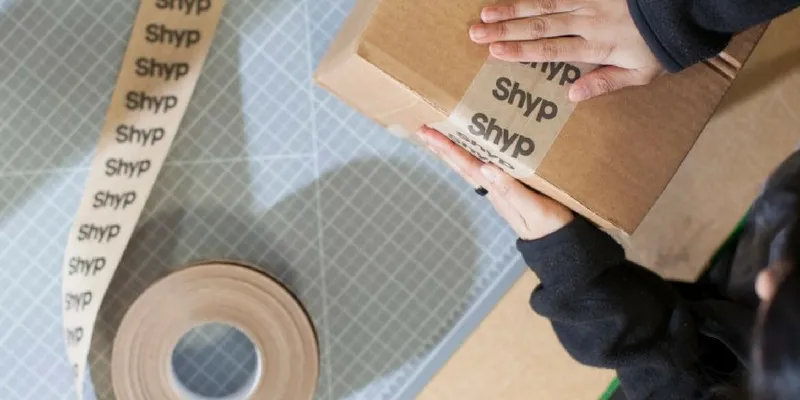Shyp – the poster child of on-demand deliveries – is calling it quits
After almost five years, over $60 million in funding, and umpteen comparisons calling it “the Uber of shipping”, on-demand services poster child and delivery startup Shyp is finally calling it quits. In a LinkedIn blog post published yesterday, March 27, Co-founder and CEO Kevin Gibbon announced that the company was shutting operations effective immediately, after having struggled with sustainability and finding a scalable model for expansion. Founded in 2013, the San Francisco-based startup had received glowing customer reviews and VC interest in its early years but failed to continue the momentum as investors became wary of the on-demand services space after a series of shutdowns and failures in recent years.

Image: Shyp
Shyp’s offerings and business model were quite revolutionary for its time – the company let customers click photographs of items they wanted to ship using a smartphone app, following which a courier would arrive at the customer’s home and pick up the goods. The startup then tied up with shipping services like FedEx to deliver those goods in customised packaging to the delivery address. Through this process, Shyp took away the headaches of shipping – packaging, waiting in line at delivery points, etc. – away from the customer with a one-stop on-demand solution, and customers loved it. So what went wrong?
According to Kevin, the trouble started when investors and consumers started comparisons to Uber. The “big daddy” of ridesharing, Uber’s massive war chest allowed it to heavily subsidise its offerings to consumers and still keep expanding. When Shyp tried to mimic the strategy, the first cracks started to appear. As Kevin wrote in his blog post, “While large, established companies have the financial freedom to explore new product categories for the sake of exploring, for startups it can be irresponsible.”
Shyp eventually moved from focusing exclusively on individual deliveries – which were often irregular and a poor dependable source of business – to tie-ups with small businesses that shipped goods regularly, but it was too little, too late. The company decided to cancel its expansion plans and focus on building profitability in its home turf of San Francisco, and accordingly shut down operations in Chicago, Los Angeles, and New York last July, laying off the majority of its staff. The leaner and more focused startup was able to turn its fortunes around briefly, even managing to break even by December, but in Kevin’s words, “our earlier mistakes had left us with too little runway and insufficient resources to continue pursuing the new direction”.
As TechCrunch notes, Shyp’s tale is indicative of a wider trend sweeping the on-demand sector as more and more startups find it difficult to keep offering subsidised services to consumers while balancing costs incurred. There are still a few prominent players doing well, like Instacart and DoorDash, but expansion from corporate giants like Uber (with its UberEats service) and Amazon (who is aggressively pushing into the space after its Whole Foods acquisition) could spell trouble for young fledgeling startups trying to break into the sector.
In his post, Kevin has apologised sincerely to his team, investors, and customers, but remains optimistic about the future. He signs off, “With all the learnings from building Shyp under our belt, I have no doubt the team will go on to do amazing, impactful things. I’m excited about what the future could hold. To that end, I can’t wait for you to see what we do next.” Shyp’s tale might be coming to a close, but the lessons from its story will likely remain relevant for years to come.







